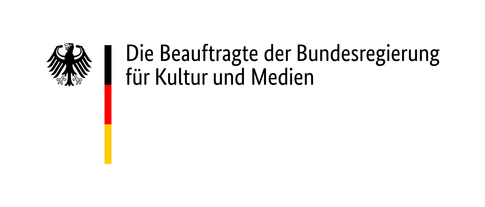Hand Puppetry between Satire, Tragedy and Human Insight
As the mother and wife of the male protagonist Oedipus, Jocasta plays a deciding role in the family drama “Oedipus Tyrannos” by the ancient Greek tragedian Sophocles. At the beginning of the play, Jocasta appears as a calm and balanced character, trying to mediate the argument between Oedipus and her brother Creon.
Bit by bit she recognizes, as the first of the main characters, the terrible scope of the different strands of events preceding the main plot and the fatal truth behind the infamous oracular decree received by her first, now deceased husband Laius. The oracle of Delphi had prophesied his own son would kill him and espouse his wife.
This insight thrusts her into the deepest despair, so that she puts an end to her own life and thereby finally seals the tragedy of her son and husband.

Puppet: Jocasta from "König Ödipus" by Gottfried Reinhardt (1974), Head and feet made from paper mache, glued and painted; dress made from cotton; collar made from textile blend, 65 x 22,5 x 9 cm
© Staatliche Kunstsammlungen Dresden, Puppentheatersammlung (Inv.-Nr.: A 10554), Foto: Jacob Franke
In Gottfried Reinhardt's (1935-2013) grotesque adaptation of the material, Jocasta becomes a rather one-dimensional character who is primarily after a new husband. When she learns that her husband Oedipus is also her son, she hangs herself, as in the ancient tragedy by Sophocles. The Punch as the omniscient narrator comments:
“There she hangs now by her thread,
due to dire actions.
You observe impartially,
because you don’t know your happiness
could hang by thinner a thread.”
(Punch in “König Oedipus” (King Oedipus) (1974) by Gottfried Reinhardt)

Gottfried Reinhardt in 2007 on his stage
© Staatliche Kunstsammlungen Dresden, Puppentheatersammlung, Photo: Frank Höhler
The play ends with a monologue by the mysteriously appearing Sphinx, who reflects on the essence of life, the search for a purpose and the contradictions of human existence and an emphatic plea by the Punch to recognize the complexity and unpredictability of human nature. The theatre becomes a metaphor for the world, a stage for change and insecurity, which also provides room for stability and orientation, insofar as one is ready to preserve his own internal balance: “Do not let yourselves be shaken, even when houses like this are quaking!” urges the Punch.
Reinhardt asks the audience to contend with the basic questions of life, without letting themselves be paralyzed by the restless search for answers or the fear of unsolved riddles. In this sense, the play becomes an invocation to understand the uncertainties of life not as a threat, but as an integral part of the human experience.
Reinhardt, who had earlier worked as a stage designer and outfitter for different Saxon playhouses and the DEFA animated film studio in Dresden, discovered his passion for hand puppets only in his late thirties. At his self-founded puppet theatre, he was in charge of all creative processes, from designing the characters and backdrops to writing, directing and acting. He understood himself as a free spirit for whom a self-governed life was of the highest importance. His uncompromising independence is expressed in the full control he exercised over every detail of his artworks.

Reinhardt’s often ambiguous productions mirror his deeply rooted convictions and personal views, which did not just address socially relevant topics, but also voiced his criticism of the elite and institutions as well as his love for nature and the animals – always consciously separate from the official art scene of the GDR.
Since he was initially denied recognition as a professional puppeteer, he mostly showed his works in private circles, like living rooms, art studios or church facilities. His repertoire stretched from Greek tragedies, fairy tales by the Brothers Grimm and dramas from the period of Weimar Classicism over musical adaptations, such as from Mozart, to his own, highly fanciful plays.
Also of interest:
Puppet theatre and animated movies have a lot in common. One such commonality is Lotte Reiniger, who on one hand was a leading pioneer of early animated film and its techniques, and on the other hand enriched the world of shadow puppetry with her paper cuttings.

What declares itself to be nonsense declares itself to be harmless. Supposedly. Because the consequence of such self-determination is the famous jester's license, which a group of theater people in the GDR also claimed for themselves in the 1980s when they called themselves “Zinnober” and began making Punch and Judy shows for adults. Their play “Die Jäger des verlorenen Verstandes” (Raiders of the Lost Mind) can easily be read by the audience as a mockery of the GDR state system and its toleration is hard to believe in retrospect - but true.

In the spring of 2020, a very special troupe of brightly coloured figures took up residence in the depot of the Puppentheatersammlung. Fishers and farmers, musicians and child gymnasts, not to mention ducks, water buffalos, dragons and fairies. They all belong to the classic cast of Vietnamese water puppetry.

